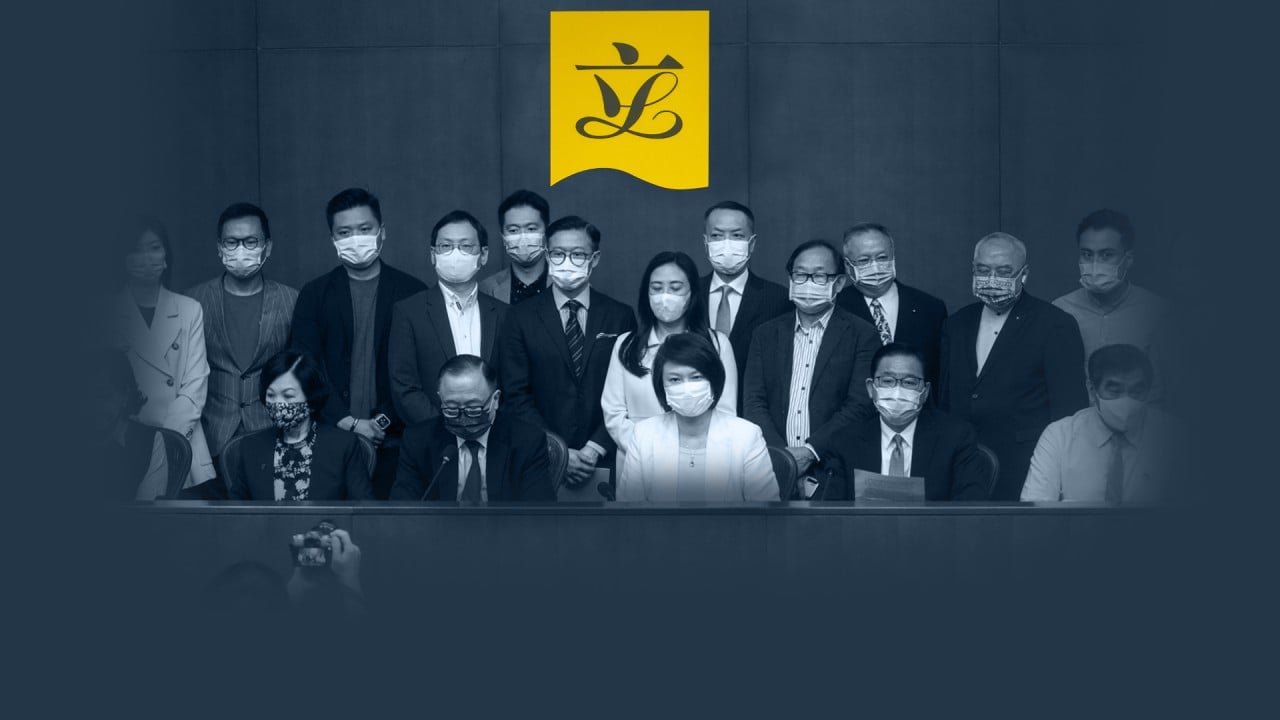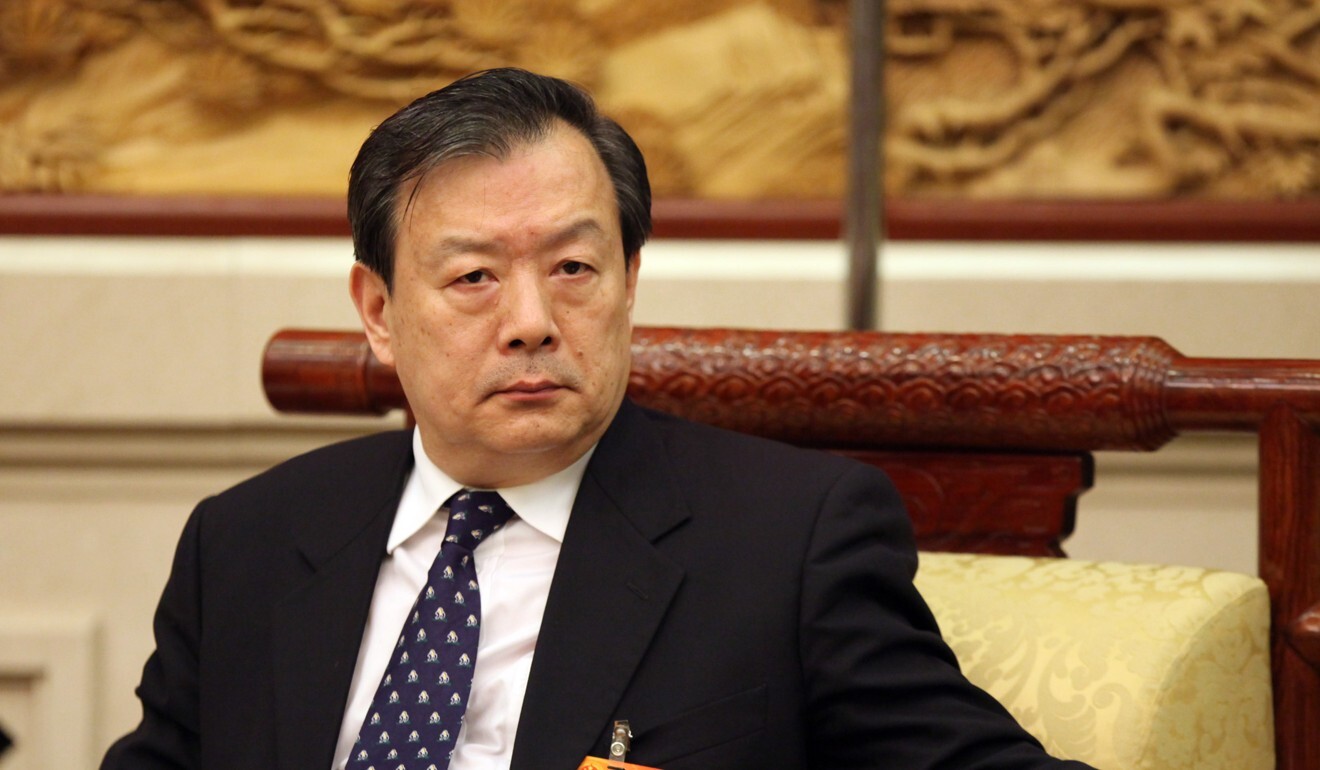
US sanctions 7 Hong Kong liaison office officials, warns of dangers from national security law
- The officials were sanctioned over what Washington calls the erosion of Hong Kong’s freedoms
- Beijing had previously threatened ‘strong’ countermeasures if the US acts
The United States on Friday issued an advisory warning to American businesses about risks to their operations and activities in Hong Kong and sanctioned seven Chinese officials from the city’s liaison office.
It says businesses face risks associated with electronic surveillance without warrants and the surrender of corporate and customer data to authorities.
“Developments over the last year in Hong Kong present clear operational, financial, legal and reputational risks for multinational firms,” the advisory said.
All seven of the officials sanctioned by the US on Friday are deputy directors in the Liaison Office of the Central People’s Government in Hong Kong. The director, Luo Huining, was sanctioned last August.
Earlier Friday, Chinese foreign ministry spokesman Zhao Lijian said China’s determination to resist US interference in Hong Kong’s affairs was “unshakeable”.
“The US should abide by international law and the basic norms of international relations. It should stop interfering in Hong Kong and China’s domestic affairs,” he said in a daily press conference.
“China will impose strong counteractions, depending on the measures of the US.”
US sanctions 23 more Chinese firms over Xinjiang, military and business ties
Like Friday’s sanctions, those measures were enacted under the authority of the Hong Kong Autonomy Act, targeting both individuals and any foreign financial institution that does business with them.
Last week, Biden extended a national emergency designation over Beijing’s tightening control of Hong Kong, which he described as an “extraordinary threat” to American security and economic interests.

05:10
Hong Kong's revamped electoral system bolsters pro-Beijing influence in key decision-making bodies
The emergency declaration, which grants the president sweeping sanctioning powers, came a year after Beijing forced a sweeping national security law upon Hong Kong, legislation that critics say has further chipped away at the city’s freedoms and undermined its rule of law.
“The situation in Hong Kong is deteriorating and the Chinese government is not keeping its commitment that it made [about] how it would deal with Hong Kong,” Biden told a joint press conference on Thursday with German Chancellor Angela Merkel.
But Xia Baolong, head of the State Council’s Hong Kong and Macau Affairs Office in Beijing, said the amount of initial public offering funds raised in Hong Kong exceeded HK$500 billion (US$64 billion) in the 12 months after the implementation of the national security law – a 50 per cent increase. Total deposits in the Hong Kong banking system increased by 5.6 per cent to HK$14.9 trillion.
British report takes aim at China over treatment of Uygurs
“The law has given international investors reassurance, and Hong Kong’s status as a financial centre has not been compromised in the slightest,” Xia told a seminar in Beijing marking the first anniversary of the law.
“I also warn the politicians of the United States and the European Parliament that they have grossly trampled on international law and interfered in our country’s internal affairs by imposing meaningless sanctions on us.
“This will only arouse more of our anger and contempt for you, and sound the death knell for your agents in Hong Kong.”

Hong Kong’s financial secretary, Paul Chan Mo-po, said on Friday that the national security law had stabilised society and restored a business-friendly environment after the protests in 2019. Speaking at a seminar on the security law, Chan added that in the year since the law took effect, the stock market has seen sizeable trading increases.
The American Chamber of Commerce in Hong Kong said it would not comment on the advisory until more details are announced.
“We are closely monitoring the developments and will respond to it at an appropriate time,” a spokesman for the group said.
Friday’s actions were welcomed by pro-democracy advocates, who have called on the Biden administration to ratchet up pressure on Beijing over its handling of Hong Kong.
The sanctioning action “continues the unwavering commitment by successive US administrations to speak up for Hong Kong and hold those responsible for the erosion of Hong Kong’s freedom and autonomy accountable,” said Samuel Chu, managing director of the Washington-based Hong Kong Democracy Council.
Books by opposition figures still sold at Hong Kong Book Fair despite complaints
As US national, Chu is believed to be the first foreign citizen sought by Hong Kong authorities under the national security law, which prohibits secession, subversion, terrorism and collusion with foreign forces.
As for the administration’s business advisory, it had made “clear what we already know”, Chu said in a statement. “The reputational and operational risks have made the China and Hong Kong markets increasingly toxic for US and foreign companies. The threat and target are now squarely on US companies and US citizens – not just Hongkongers.”
The US and its allies, including Japan, have expressed concerns over the closure of Apple Daily newspaper in Hong Kong, describing it as a suppression of free speech. There are also rising calls to boycott the 2022 Beijing Winter Olympics over alleged human rights abuses.
Additional reporting by Reuters





